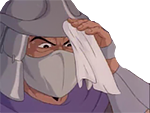How is
Baldur’s Gate 3 going to implement the modern rules of
Dungeons & Dragons? Last week in Los Angeles, we sat down with creative director Swen Vincke and D&D head honcho Mike Mearls on a bonus episode of
Kotaku Splitscreen to discuss. One thing you can definitely expect: the ranger is getting some changes.
We talked about how the recently-announced
Baldur’s Gate 3 deal came together, why
Divinity: Original Sin 2 developer Larian Studios wound up with the project, the challenges of converting a tabletop game with infinite possibilities into a limited video game, and some of D&D’s most confusing mechanics (like spell slots). Vincke and Mearls also teased some big changes for the ranger class.
Listen above, or read an excerpt:
Mike Mearls: One of the things that’s been nice is that [
Baldur’s Gate 3developer Larian and D&D steward Wizards of the Coast] have a very similar design culture. So there was one instance where, as we look at our character classes, we look at feedback we get in the tabletop space. There was one class we were working on at that got a lot of negative feedback, so I shot an email over to Nick [Pechenin, systems designer] about “Hey, we’re looking at making some changes, potentially playtesting some new material for this class in tabletop, just to let you guys know.” And he actually got back to me and said, “Hey for this class, actually that same exact issue has come up, and here’s what we’re looking at doing.” It was almost like we had already shared notes.
Jason: What’s the class?
Mearls: Oh, I dunno.
Jason: You can’t give that whole example and then not say what it is.
Mearls: I dunno, because [turning to Vincke] I don’t want to step on any of your announcements.
Swen Vincke: I’m fine. You can talk about the class.
Mearls: I can say purely from a tabletop space, one of the things we found was that the ranger character class, in tabletop players really felt the first couple of levels, they weren’t really making choices that they felt were having a real impact on gameplay... One of the things we learned is that we had some assumptions about how exploration would play out in the game back when we were developing 5th edition—we thought, “Oh, we’ll give the rangers some of these toys to play with because exploration is part of the game.” And we’ve just found that either a lot of DMs don’t use a lot of the sub-systems that those spoke to, or they weren’t really coming up on a level of play at the table that was actually impactful to the narrative.
The ranger, for instance: Oh, I’m gonna pick desert as my favored terrain. We can’t get lost in the desert. Which sounds great—I wouldn’t want to get lost in the desert. But when you’re playing a tabletop role-playing game, it basically means, “OK, you’ve crossed the desert, you’re done.” It’s not really giving the ranger a chance to shine. So we’re looking at maybe play-testing this summer some new options that complement what’s there without overriding it. One of the hard things about working in tabletop is you can’t patch a physical book—unless you’re willing to break into everyone’s house and paste in new things.
Jason: Which you should try to do.
Mearls: Yeah, I mean Amazon’s got drones. That won’t end poorly, right? So yeah, we’re looking at ways, how can we kind of bridge that gap—how can 2019 Mike work within the constraints of 2014 Mike’s world and take those five years and apply them to a game without disrupting everyone’s campaigns?












![The Year of Incline [2014] Codex 2014](/forums/smiles/campaign_tags/campaign_incline2014.png)
















